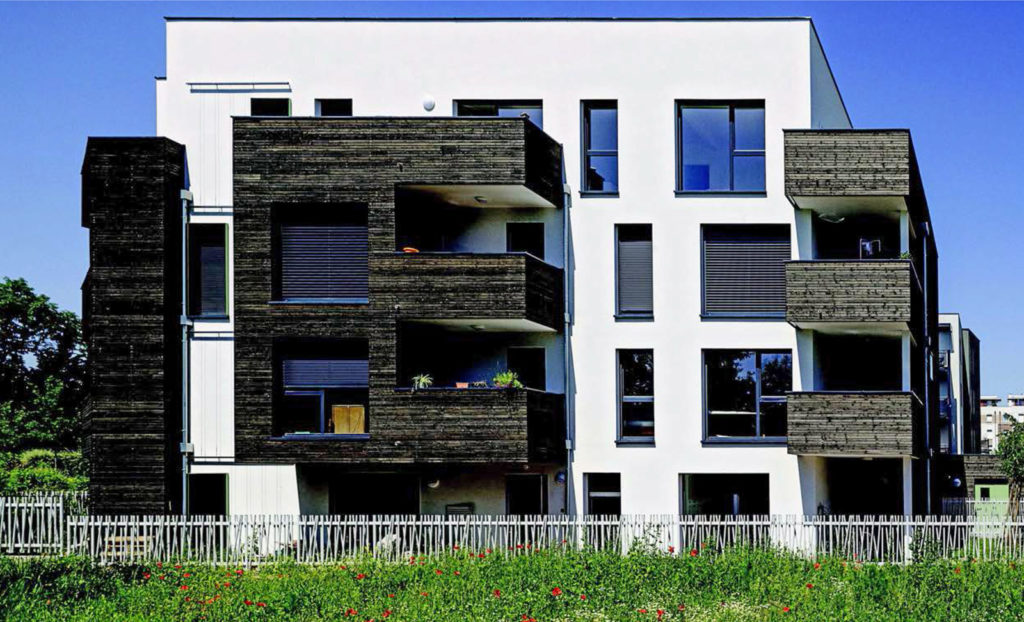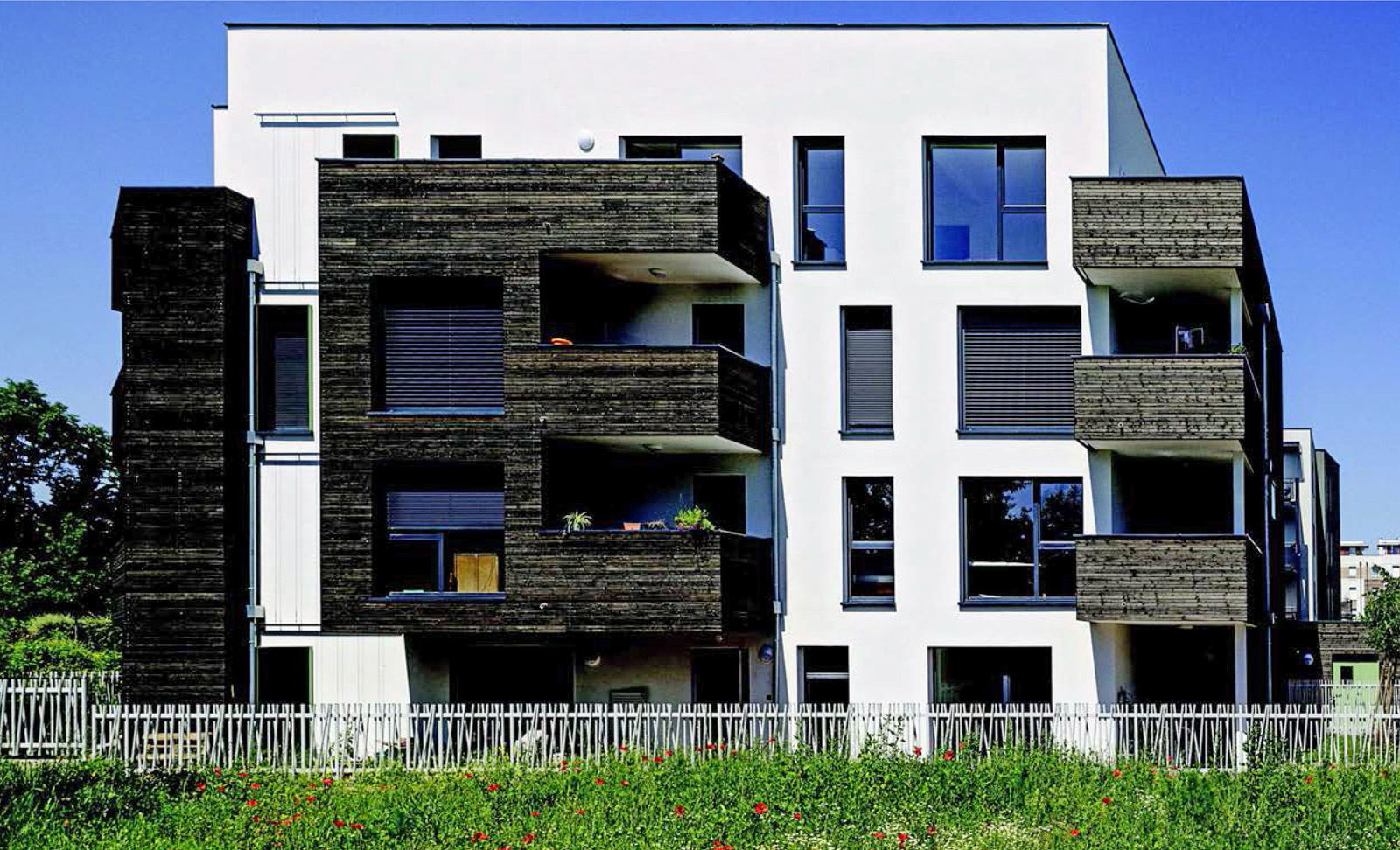Fr : Le projet ERASMUS+ « Cooper’actif, Habiter ensemble demain autrement » a démarré dès septembre avec un voyage d’étude à Strasbourg, où était inauguré le 10 septembre un petit immeuble de 15 logements (Dossier de presse : https://goo.gl/uuRYsz). Strasbourg est connue pour être une ville pionnière en matière d’habitat participatif, comptant à son actif plus de 25 opérations déjà habitées ou en cours de réalisation, dont de nombreuses conduites avec des bailleurs sociaux.
L’inauguration du projet « Lieu commun » était une étape dans l’histoire du mouvement de l’Habitat Participatif puisque pour la première fois, un bailleur social, Habitat de l’ Ill, s’était investi à initier du locatif social participatif : 15 familles (dont 20 enfants) regroupées en association se sont largement impliquées pendant deux ans dans la conception de leur immeuble (et non pas seulement de leurs logements) ; elles en gèrent leurs espaces communs et même plus, puisqu’elles auront la responsabilité de faire tourner un jardin partagé attenant de 2000 m 2, ouvert à l’échelle du quartier tout entier.
L’architecte Thomas Hugen, un des membres actifs de la création du réseau Archicoop y a fait une démonstration convaincante de l’importance à accorder à la maitrise d’usage. Véronique Brom, présidente de l’association, a conclu en citant Gandhi, « la différence entre le possible et l’impossible se trouve dans la détermination ».
———————————
En: The ERASMUS + Project « Cooper’actif, Living together tomorrow otherwise » started in September with a study trip to Strasbourg, where was inaugurated on September 10 a small building of 15 apartments. Strasbourg is known to be a pioneering city in participatory habitat, as she counts more than 25 already operations, already inhabited or under construction, including many conducted with social landlords.
The inauguration of the « common place » project was a milestone in the history of the participatory habitat movement, as for the first time, a social landlord, home of the ill, had invested to introduce participatory social housing: 15 families (including 20 children), gathered in an association, were largely involved for two years in the design of their building (and not just their homes); they are actually managing their common areas and even more, since they have the responsibility of running a shared adjoining garden of 2000 m2, open to the entire neighbourhood.
The architect Thomas Hugen, an active member of the creation of Archicoop network, has made a convincing demonstration of the importance attached to the mastery of use. Véronique Brom, president of the association, concluded by quoting Gandhi.


